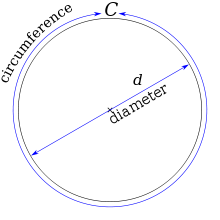The Gemoro in Shabbos 20a talks about how bishul takes effect from the moment that a solid food becomes edible. The Gemoro talks about Ben Drosai who was a robber who didn't have time for his food to be completely cooked:
גְּמָ׳ וְכַמָּה? אָמַר רַבִּי אֶלְעָזָר אָמַר רַב: כְּדֵי שֶׁיִּצּוֹלוּ מִבְּעוֹד יוֹם כְּמַאֲכָל בֶּן דְּרוֹסַאי. אִיתְּמַר נָמֵי, אָמַר רַב אַסִּי אָמַר רַבִּי יוֹחָנָן: כׇּל שֶׁהוּא כְּמַאֲכָל בֶּן דְּרוֹסַאי, אֵין בּוֹ מִשּׁוּם בִּישּׁוּלֵי גוֹיִם. תַּנְיָא חֲנַנְיָא אוֹמֵר: כׇּל שֶׁהוּא כְּמַאֲכָל בֶּן דְּרוֹסַאי — מוּתָּר לְהַשְׁהוֹתוֹ עַל גַּבֵּי כִּירָה וְאַף עַל פִּי שֶׁאֵין גְּרוּפָה וּקְטוּמָה.
GEMARA: We learned in the mishna that one may only roast meat and other food items if there remains sufficient time so that they could be roasted while it is still day. The Gemara asks: And how much do they need to be roasted in order to be considered sufficient, so that it will be permitted to complete their cooking afterward? Rabbi Elazar said that Rav said: So that they will be roasted while it is still day like the food of ben Drosai, which was partially roasted. Ben Drosai was a robber and pursued by all. He could not wait for his food to roast completely, so he sufficed with a partial roasting. It was also stated by another of the Sages, as Rav Asi said that Rabbi Yoḥanan said: Anything that is already cooked like the food of ben Drosai by a Jew, no longer has a problem of the cooking of gentiles. If a gentile completed cooking this food, it is, nevertheless, permitted to eat, even though, as a rule, it is prohibited to eat food cooked by gentiles. It was taught in a baraita, Ḥananya says: With regard to anything that is already cooked like the food of ben Drosai, it is permitted to keep it on the stove on Shabbat and even though this stove is not swept of coals and the burning coals are not covered with ashes. Since the food was already cooked to that extent, there is no concern that he will come to stoke the coals.
(Sefaria translation and added annotation)
Rashi there states:
בן דרוסאי - לסטים היה ומבשל בישולו שליש
Ben Drosai - he was a robber and he would cook his food a third
I.e. since he was in such a hurry his food would only be one-third cooked.

